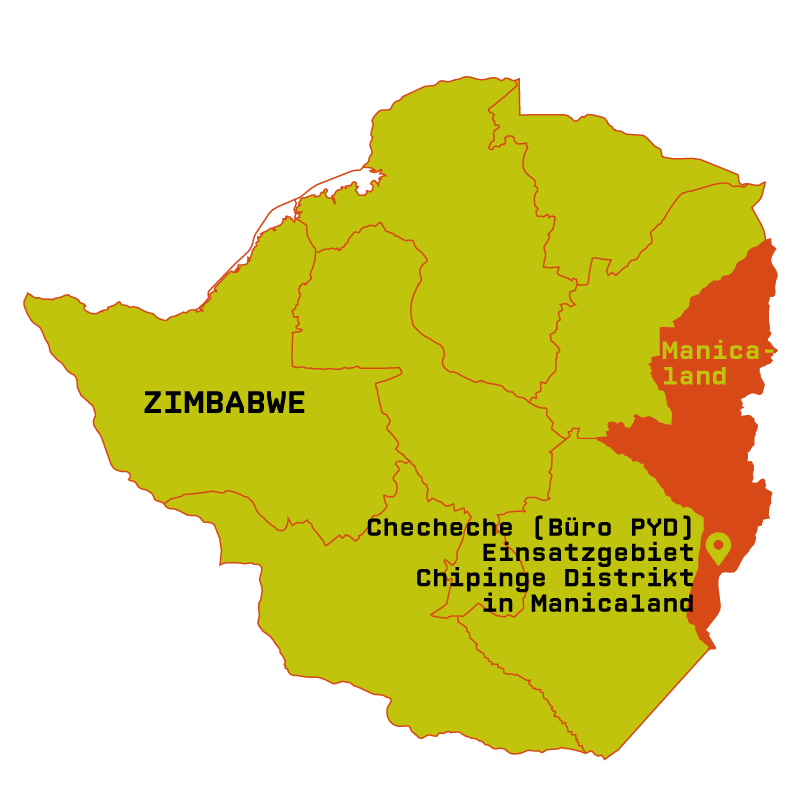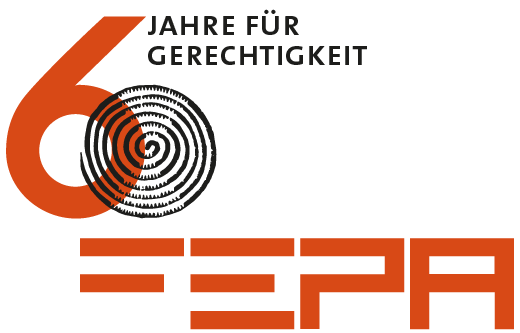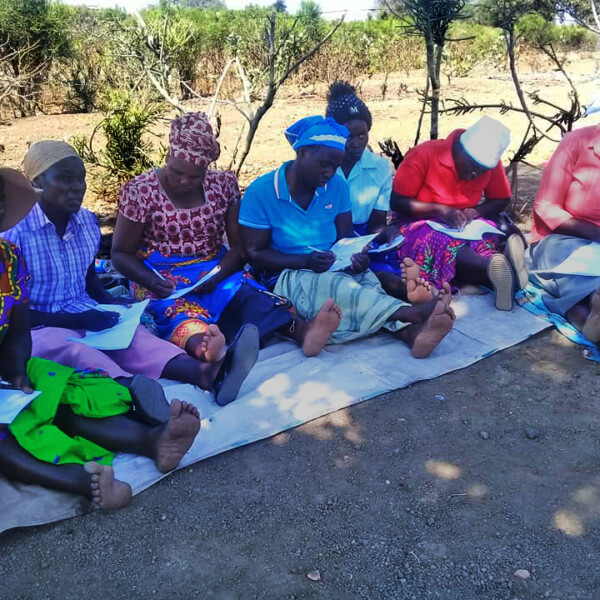LIVELIHOOD-PROJECT: Financial skills and microfinance for women
The Livelihood Project trains women in entrepreneurship and financial management and accompanies them in setting up businesses. In addition, they get access to business loans and thus to capital to finance their projects – mostly in agriculture.
Empowering women – changing society sustainably
Since 2009, the local farming community has gradually lost access to land that is used by corporations for the production of bio-ethanol. This poses a financial problem for many farming families, reducing their livelihoods. This leads to increased poverty. In addition, there is a heavy burden from the current drought; 2019 will go down as one of the driest years in Zimbabwe’s history.
As a result, there is an increase in problems such as school dropouts, thefts, increased prostitution, child marriages as well as the hiring out of children, preferably girls. Family fathers often migrate to the neighbouring countries of South Africa and Botswana in order to find an income there. However, this is often difficult. The women stay behind alone with the children and start looking for a new income. Farming alone is not enough to feed the family.
Women try to set up small businesses in the village community. To do this, they use the small areas of land they have left to grow vegetables, raise pigs or poultry.
The livelihood project was initiated by our partner organisation PYCD (Platform for Youth and Community Development) and has been active in Chipinge since 2008. It has been shown that often technical skills for new projects are available, but basic entrepreneurial skills were lacking and capital was not or only with difficulty accessible. This is exactly where the project comes in.
The main goal of the project is to find solutions to deal with women’s financial challenges.
Research showed that supported women invest a large part of their earned income in projects that benefit the village community and use it to feed other family members or to finance their education. However, sometimes they invest in projects that are not very profitable. Therefore, the project aims to invest efficiently and in an economically sustainable way. When women are financially independent from their husbands, their social position also improves. The project thus makes an important contribution to gender equality and meets the targets of SDG 5 (Gender Equality). Further SDGs are thus supported.
Currently
At the moment, 15 women are receiving training tailored to their specific needs in a pilot phase. This includes a practical coaching programme that accompanies them in their various business activities.

| fepa partner organisation | Platform for Youth Development |
| Location | Chipinge, Zimbabwe |
| Target group | female entrepreneurs, women in general |
| fepa Budget until 2024 total | CHF 20’000 |

